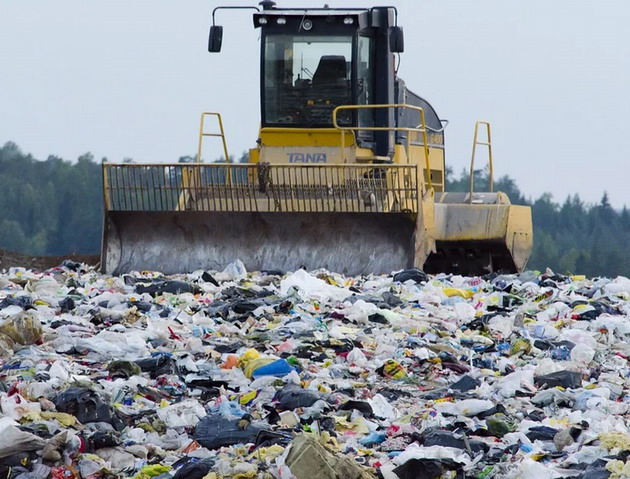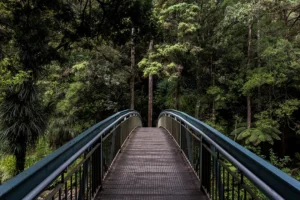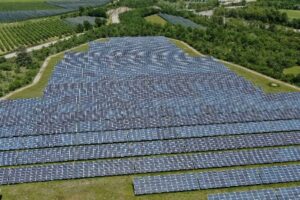15 Pros and Cons of Landfills

Landfills are always a topic for heated debates with eco-warriors and your neighbors alike. People have long been told the downfalls of trash, how landfills are ruining the world and the environment, but they have some little known uses and they’re not all bad. Below you’ll find a list of Pros about landfills and the Cons that you may not have heard about.
Pros of Landfills
We’ll start this off with the good things. We’ll go over what landfills are meant for, why they are helpful and what they offer to us.
1. Landfills Are a Source of Energy
You heard that right. Modern landfills have figured out how to take your trash and make it into energy.
As the trash and waste begin to break down, landfill gas -a mix of carbon dioxide and methane- is created. While this can be harmful to the ozone layer and produce air pollutants, modern landfills have found ways to harness that and not allow it to be freely dispersed.
A series of pipes can collect the gas and allow it to be used for energy production.
2. Modern Landfills No Longer Hurt the Environment
While older landfills were literally an open-air dump for nearly everything, that isn’t the case anymore. They follow strict laws, regulations, and standards to make sure they don’t harm the soil anymore. The bottoms are lined with thick and resistant plastic to prevent seepage, they are no longer open-air and the trash isn’t just piled a mile high.
There is a science that goes into it so there isn’t damage done to the soil and water while advanced technology carefully monitors the drainage and the waste.
3. Modern Landfills Prevent Water Pollution
While pollution of trash into bodies of water is a huge concern, the best way to handle it is to prevent it from handling.
Ensuring that the trash goes where it should, in a bin or can, it can prevent it from ending up in our water sources. Not only is it a better option, but it is also cheaper to manage a landfill than to clean up the ocean.
4. Landfills Aren’t Running Out
In the 1980s, there was a scare that the space in the landfills would soon run out.
Well, as we can see today in 2020, that is not true. Not only is there still room, but we also have won’t run out anytime soon.
Surprisingly, the number of landfills has gone from around 8,000 in the late 1980s to around 2,000 today. We have plenty of room in those, not to mention there are planned sites if the need arises.
5. Landfills Are Cheap
Don’t get me wrong, recycling is the way to go for many things like electronics, but sometimes it’s cheaper to send them to a landfill.
Certain plastics are more costly to recycle since they have to be sorted and cleaned before processing.
Landfills offer a great alternative when you consider that the waste could be polluting the environment rather than disposed of responsibly. Just to note: cheap doesn’t mean poorly run. All landfills are subject to strict rules and regulations. While following these, it is still a more inexpensive option when compared to clean up costs of pollutants.
Cons of Landfills
We’ve gone over the positive things about landfills, and explained how they serve their purpose. Now it’s time to talk about the bad things that they still produce in the environment.
1. Landfills Are Literally Full of Waste
Landfills are full of waste products and junk. While a portion of it belongs there such as your used banana peels, things like electronics, some plastics and paper are better to be recycled. 9 out of 10 things that end up there could have been recycled and reused.
As much as possible, when disposing of waste, make sure you click over here to find a reliable waste disposal company that ensures your waste is sorted and sent to an appropriate place, which is a recycling facility.
2. Some Waste Should Never Go There, But It Does
Things like electronics containing heavy metals and toxic components, should never go to a landfill.
However, that doesn’t stop people from throwing away their gadgets. This creates multiple huge problems. First of all there is a huge security problem with throwing away devices. If not properly wiped, then your information could end up in the wrong hands.
If you want to protect yourself, and your business, then you should ensure that you chose a company focused on secure IT Asset Disposition.
Having your electronics completely wiped of all personal information and that the toxic components are removed and not introduced to the environment.
3. Landfills Affect Wildlife
Landfills do play a major role in impacting the natural wildlife in an area. Where some animals such as rats or species of birds thrive on eating the waste, others suffer from the loss of land and the byproducts such as the smell, decrease in vegetation and the industrialization of the area.
4. Landfills Create Leachate
Leachate is a more polite and scientific way to say trash juice. This juice is literally decomposed and liquified trash combined with rainwater that drains from the sites.
It is toxic to humans, wildlife and can have a huge impact if it gets into the soil or water. While responsible landfills prevent this, having this pollutant introduced to the environment is not only disgusting but causes serious environmental issues.
5. Landfills Affect Human Health
Because they are a breeding ground for vermin and bacteria, they pose a perfect storm for diseases. These sites are a combination of factors that allow for health risks to occur.
It has been noted that living near or prolonged exposure to landfills has been linked to cancer, respiratory illness, and even birth defects.
6. Landfills still Emit Landfill Gases
Despite best efforts, having the gases seeping from landfills is still a very negative thing. Currently, the soil is piled on top for prevention, but the gasses are able to penetrate the soil and end up in the air. Gasses that don’t escape or are harvested also create a potentially dangerous situation.
Methane builds up underground within the landfills and it is extremely flammable. Within unknown items filling up the landfills, a fire could cause an explosion easily.
7. Landfills have HUGE Potential for Groundwater Pollution
While every effort is made to keep leachate from seeping into the ground, the runoff still poses huge risks for water sources. Having toxic trash juice that seeps into the water table will cause water and soil pollution for centuries.
The toxic leachate contains many different metals, ammonium, carbons and different organic and inorganic waste products that can cause multiple health effects to humans and animals for several generations.
8. Landfills Are Too Easy for Waste
Landfills have made throwing away the trash easier than recycling.
While they serve their purpose and help to keep trash from the environment, if more of this ease was placed on recycling products and collection, then there would be less waste there. Encouraging recycling means making it easier to do that throwing something away.
9. Landfills Last for Years
The areas where the trash is dumped can cause problems for decades. While they are carefully monitored to ensure that any leakage, emissions or issues arise, this trash is only buried and not destroyed.
Rather than eliminating the products, they remain in the ground for long periods of time and are even built over rather than incinerating the trash to generate energy.
10. Recycling is Better!
Recycling allows for the use of products again instead of burying them in the ground. The items are repurposed instead of being wasted and can help prevent items such as TVs, phones, plastics, batteries, and papers from being placed in a landfill in the first place.
Conclusion
Landfills offer a great solution for waste that can be composted and is not eligible for recycling. They have modernized them over the years to be safer than ever and we have plenty of room for the trash. But, they still impose huge environmental risks and can cause more waste rather than to have it reused. Tell us down below, what do you think we can do to decrease waste products? How are you helping the environment? Comment below!







